About 50 years ago an unknown artist entered a portrait of the artist Russell Drysdale in the Archibald Prize. They had painted the artist as a craggy head, emerging from the landscape. The gallery trustees, who knew Drysdale well, loved it – but it was never hung. In their collective opinion the Archibald Prize was a serious art competition. Its subject should never be mocked, even with affection.
How times have changed. The current generation of trustees still take the prize seriously, but not only as an exhibition. The prize has evolved to being an annual snapshot of Australia. It shows a selection of the personalities who are valued both by the artists who paint them and the trustees who select the lucky few to be on view (it is worth noting that while 57 works have been hung, 949 were entered).
This year the exhibition reveals a colourful display of a multitude of styles and subjects. The new orthodoxy is that there is no orthodoxy. There is a similar inclusive sensibility on display in the Wynne Prize for landscape painting or figurative sculpture, and the Sulman Prize for best subject painting, genre painting or mural project exhibitions, although these works tend to be overlooked in the annual festival of art.
‘I think Archie would be pleased’: 100 years of our most famous portrait prize and my almost 50 years watching it evolve
The trifecta
Perhaps the work that best encapsulates 2023’s Archibald is Kaylene Whiskey’s Cooking my famous Indulkana soup, a joyous celebration of raw ingredients, pop culture and Aboriginal heritage. It rightly hangs in a prominent position, opposite the podium where the final judgement will be announced.
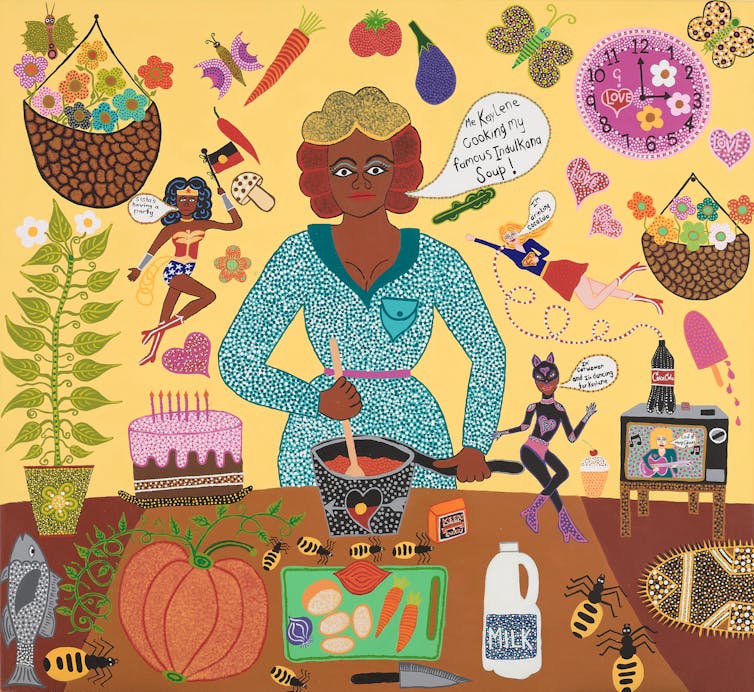
Whiskey is also exhibiting Come see Kaylene in the Sulman Prize, a reworked Northern Territory tourism poster from the days when TAA flew “the friendly way”. Those who have come to see her include good friends Wonder Woman and Dolly Parton.
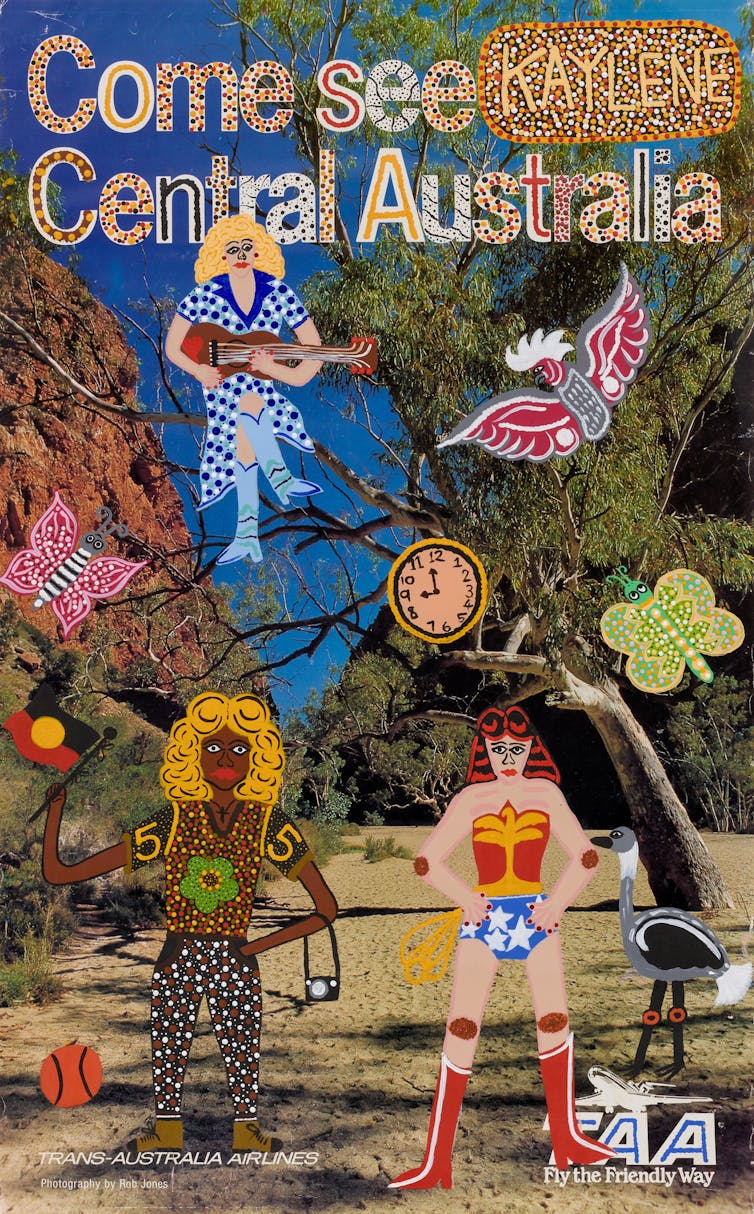
Jason Phu has managed the trifecta this year, with entries hung in all three competitions. His Archibald portrait of William Yang, cameras are the best, cameras are the worst, implies Yang’s trademark low-key inscrutability.
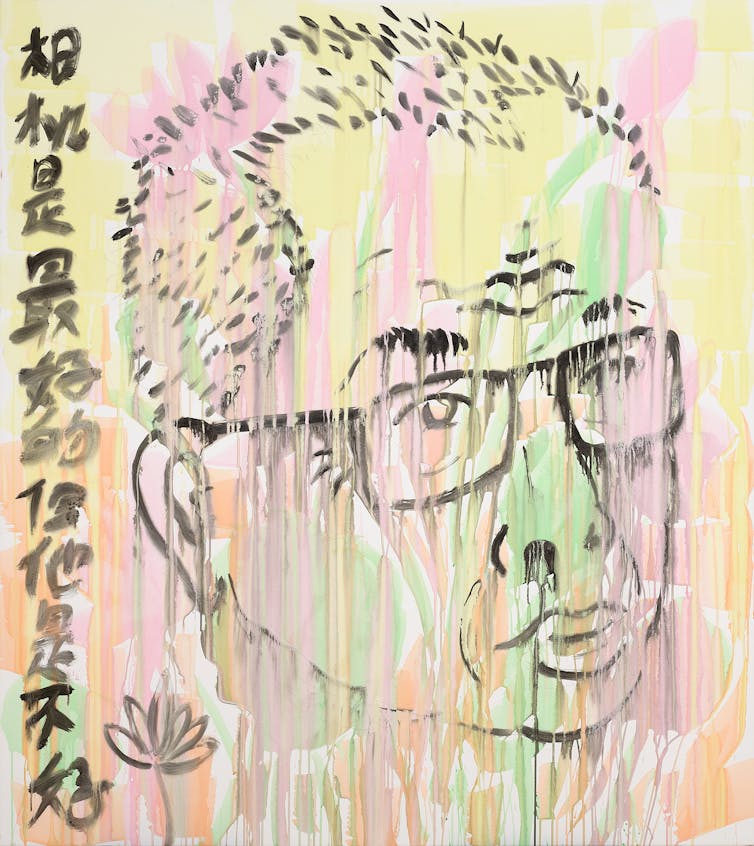
In all three of Phu’s paintings thin paint runs down the surface, making it look as though we are seeing the images through wet glass.
This is most disconcerting in his Wynne entry, EVERYTHING STINKS UNDER A STINKING HOT SUN, EVERYTHING GROWS UNDER A SEXY SEXY SUMMER SUN (after a pile of dead rats on a lovely flower bed in the rocks), based on memories of an incident when he was a “dish pig” in a tourist restaurant in The Rocks.
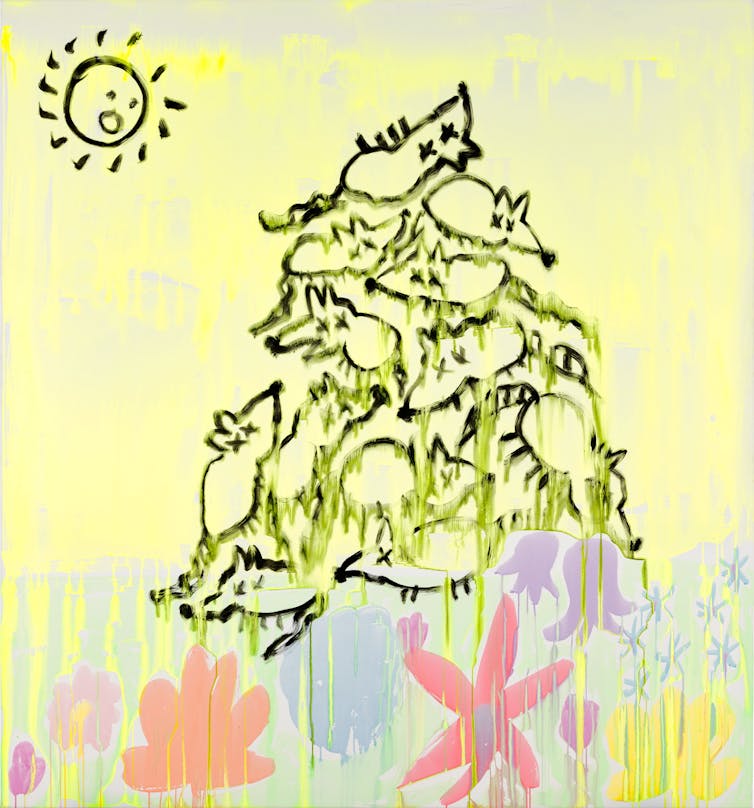
I suspect the Trustees will find it hard to judge this year’s Wynne as there are many very strong entries, including sculptures.
Billy Bain’s Blak Excellence is a light-hearted collection of five Aboriginal sports people, all of whom are both stars in their field, all of whom have helped change some negative stereotypes some would impose on Aboriginal Australians.
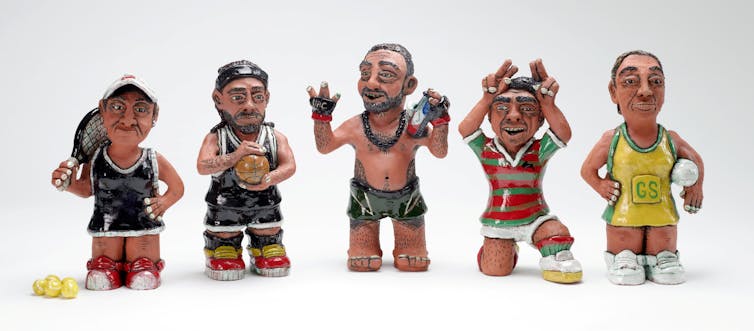
Probably the most beautiful of the sculptural entries is Pippin Drysdale’s Wolfe Creek Crater Installation, consisting of 17 individual porcelain pieces. However the most memorable is James Powditch’s The Wynne Club Championship, a mock honour board for the previous winners of the grand old prize.
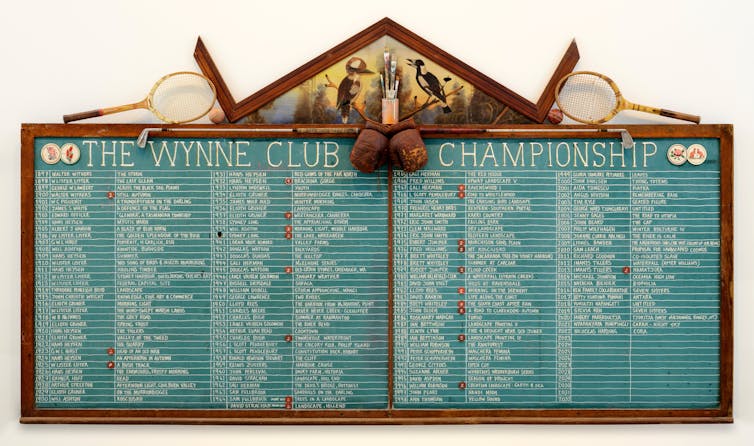
Life is short, art is long
But the Archibald remains the main game.
When trying to assess this year’s exhibition I keep on thinking of Sydney’s Royal Easter Show. It is enormously popular with the general public for it sideshows and baby animals, magnificent displays of agricultural produce, fairy floss and CWA scones. But at its heart there is the very serious purpose of competition – from fine wool sheep and beef cattle to dogs and poultry. The day trippers enjoy the spectacle but the competitors mean business. And so it is with the Archibald.
When the packing room judges gave the amuse bouche of the Packing Room Prize to Andrea Huelin, they set a high bar for those judging the main event.
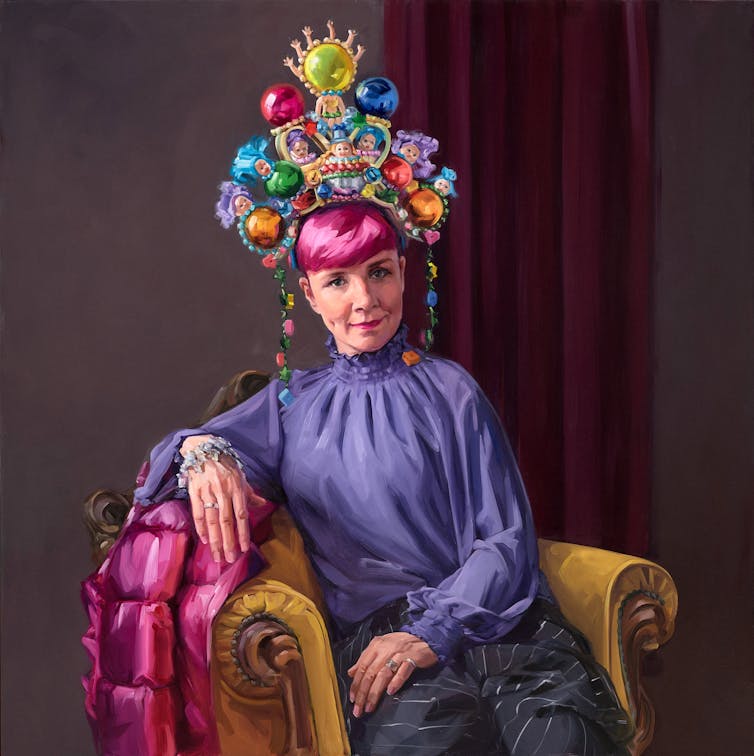
In the past it would be fair to describe the gallery’s packing crew as “good old boys”: the early winners were, more often than not, paintings otherwise destined for the reject pile.
This year’s winning portrait, Clown Jewels, is a credible finalist. It sits well with academic portraits by Judith Sinnamon, Tsering Hannaford and Marie Mansfield.
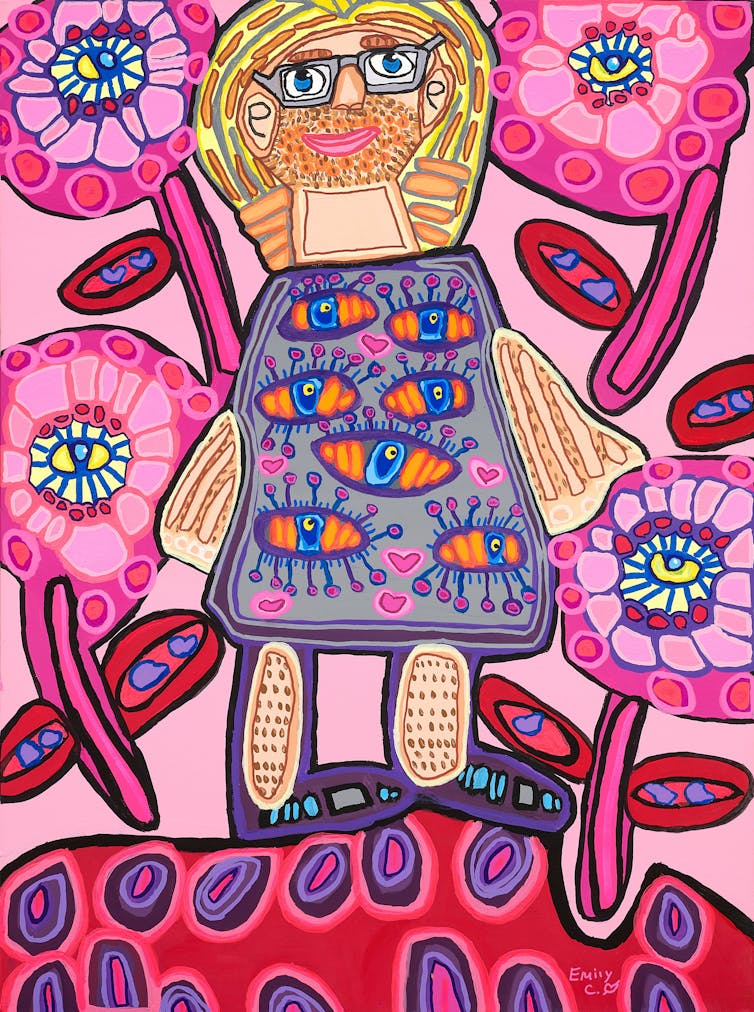
The exhibition is enlivened by Ryan Presley’s whimsical but tough Blood money – infinite dollar note – Aunty Regina Pilawuk Wilson, the sheer energy of Emily Crockford’s Jeff’s pink daisy eyelash clash and Abdul Abdullah’s playful Self-portrait after MD 2.
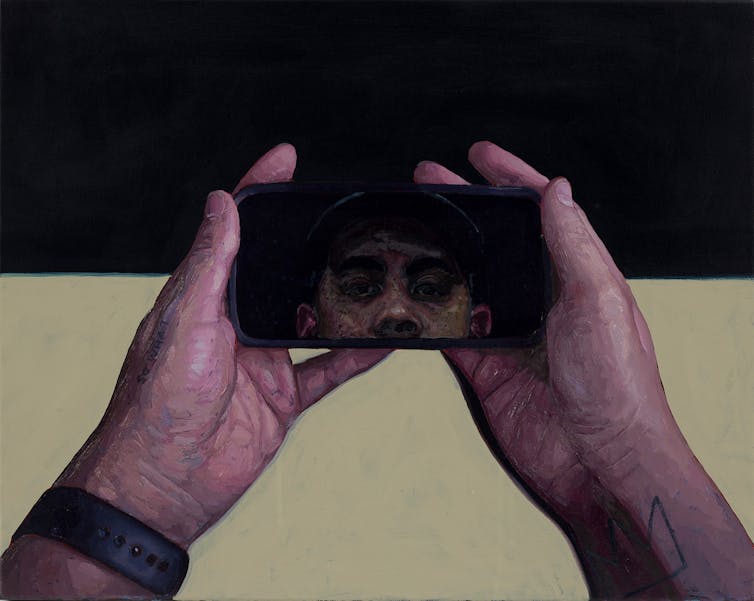
But the painting that haunts me, that I cannot forget, is Danie Mellor’s A portrait of intimacy. The subject is Gene Sherman, whose husband Brian died less than a year ago.
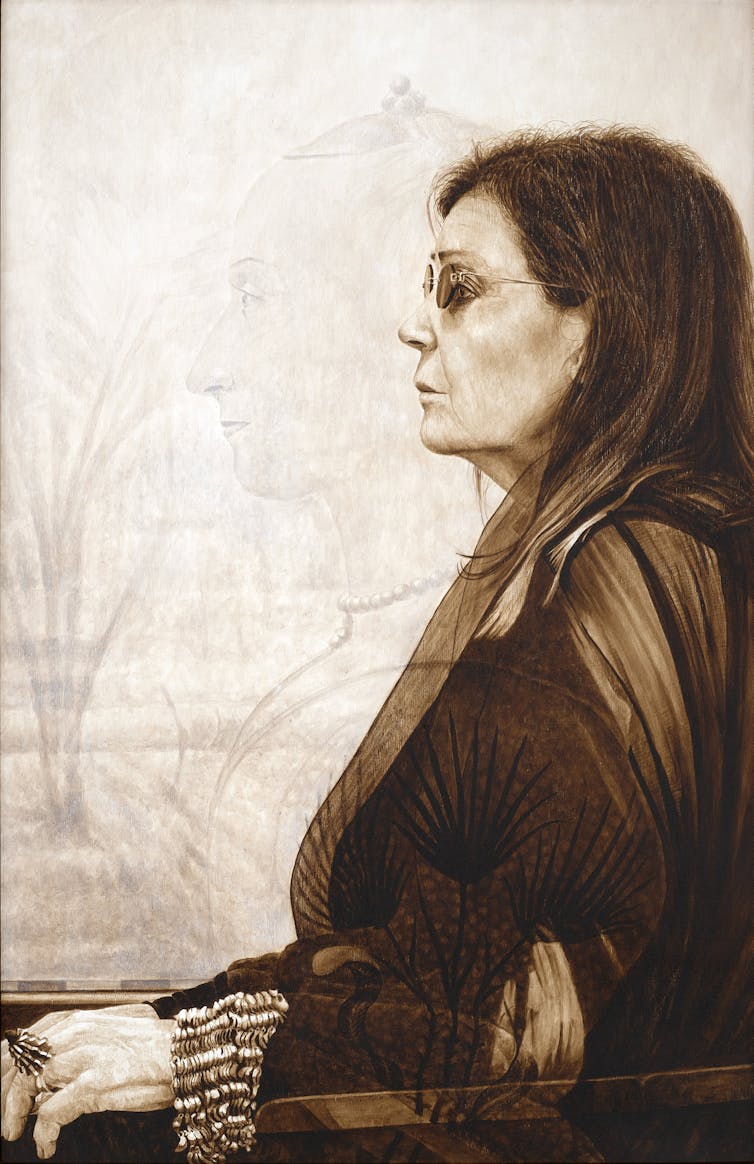
She sits in profile, her face controlled in grief, staring ahead, focusing on infinity, eyes protected by her tinted glasses, hands gripping the arm of the chair. Sherman’s pose echoes a translucent background image of Alesso Baldovinetti’s Portrait of a Lady in Yellow.
Life is short, art is long, and will outlive us all.
Judging the Archibald: the rules of the game




